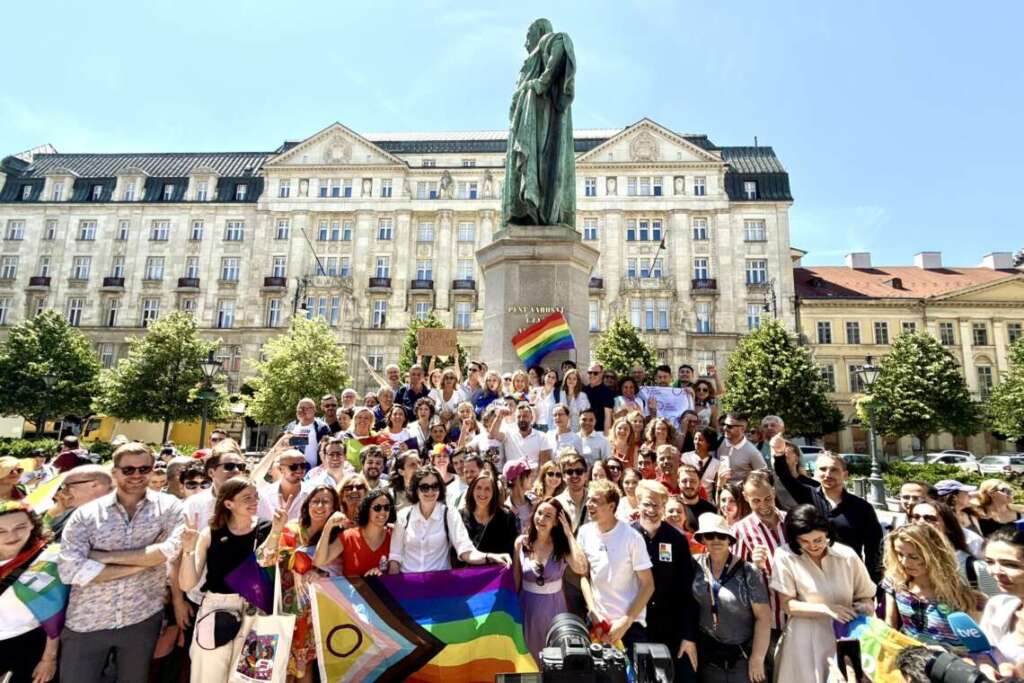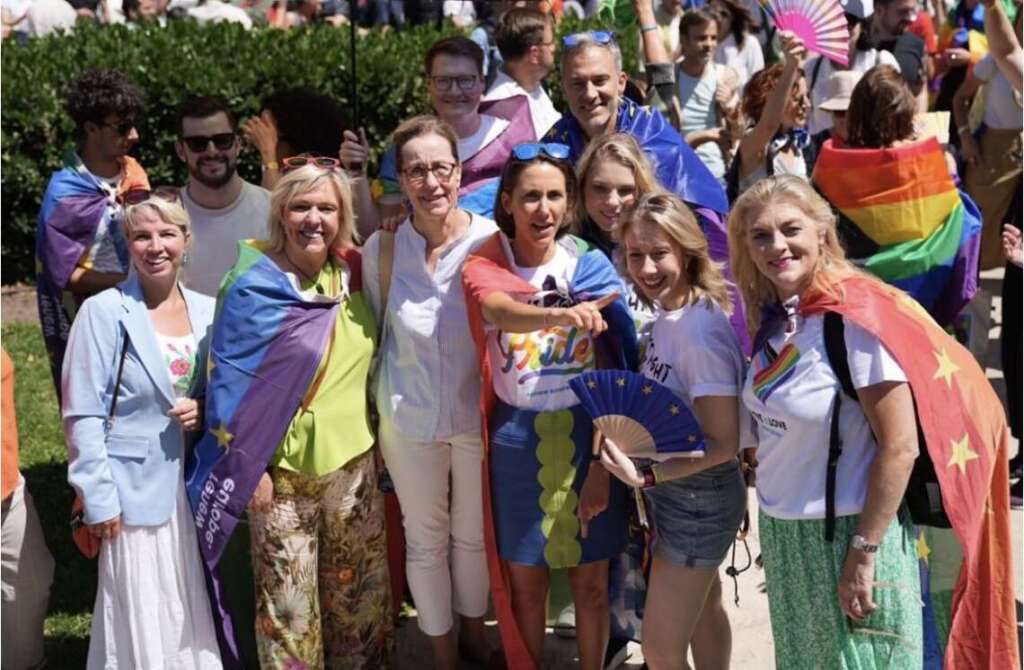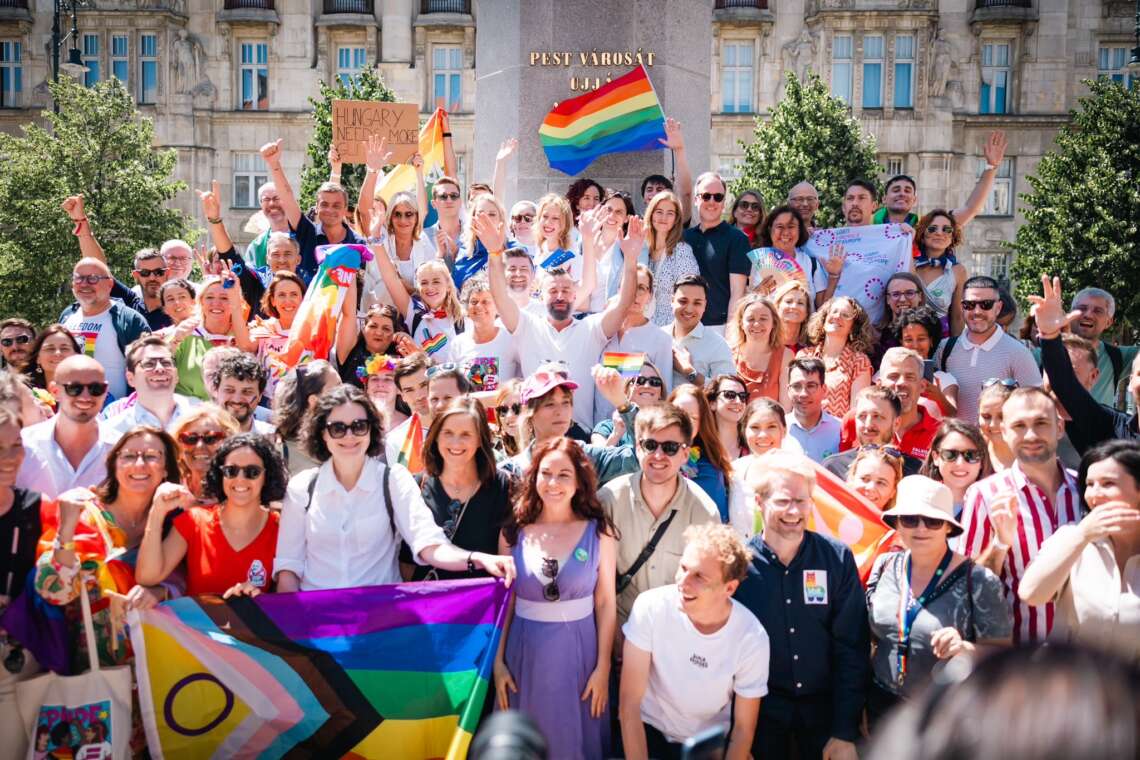Budapest Pride turned from a celebration into a powerful protest against Viktor Orbán’s hardline rule, uniting voices for rights and democracy beyond the LGBTQ+ community.
Budapest witnessed one of the largest Pride marches in its history on Saturday, with an estimated 100,000 to 200,000 participants flooding the city centre in defiance of a government attempt to ban the event.
The annual Budapest Pride march — typically seen as a celebration of LGBTQ+ rights — became a broader demonstration of resistance against Prime Minister Viktor Orbán’s increasingly hardline policies. This year, the event turned into a mass protest for human rights and democratic freedoms, drawing support far beyond the LGBTQ+ community.
What is usually a 20-minute stroll across the Elizabeth Bridge from Pest to Buda stretched to three hours as crowds filled the riverbanks and downtown avenues under the searing summer sun.

According to BBC reporting, many marchers were motivated by what they saw as an authoritarian overreach. Last year’s Pride drew just 35,000 people; this year’s numbers were bolstered by those reacting to Orbán’s new legislation and rhetoric.
At the heart of the controversy is a law passed by Orbán’s Fidesz party, tying freedom of assembly to a 2021 “child protection” statute that conflates homosexuality with paedophilia. Authorities claimed the march could expose children to “harmful content,” a justification used to attempt its cancellation.
However, Budapest Mayor Gergely Karácsony pushed back, citing a 2001 law exempting city council-organised events from the assembly restrictions. “We don’t exactly look as though we were banned,” he told a cheering crowd outside Budapest Technical University. “We’re peacefully and freely performing a big, fat show to a puffed-up and hateful power.”
Protest signs directly mocked Orbán and his policies. One banner read, “In my history class, I learnt enough to recognise a dictatorship. You don’t need to illustrate it — Vik!” Another declared: “I’m so bored of fascism.”

T-shirts featuring Orbán’s face with rainbow makeup were seen across the crowd, underscoring the satirical defiance that coloured the day.
Finnish MEP Li Andersson also attended the march, criticising the Hungarian government’s use of “family values” as a pretext to clamp down on rights. “This is about the fundamental rights of all of us,” she said.
Meanwhile, Prime Minister Orbán spent the day at a graduation ceremony for new police officers, stating that “order does not come into being by itself” and must be “created.” His message was echoed online by Fidesz officials, who shared family photos under the theme of “real pride.”
Despite the restrained police presence on the ground, law enforcement monitored the event via temporary surveillance cameras and mobile units. Under a new March 18 law, police are now authorised to use facial recognition technology during such gatherings. Participants risk fines ranging from £14 ($19) to £430.
Government-aligned media outlets lambasted the march. Magyar Nemzet, a pro-government daily, labelled it “chaos” and criticised the attendance of Swedish activist Greta Thunberg, calling her a “terrorist supporter.”
.











